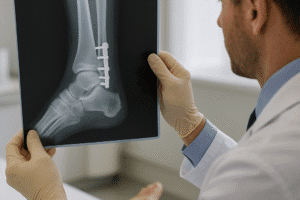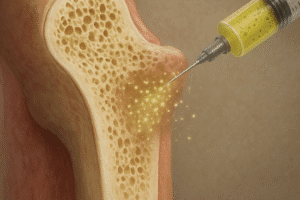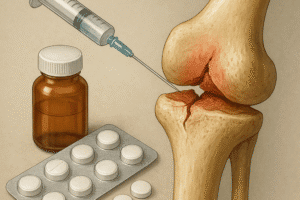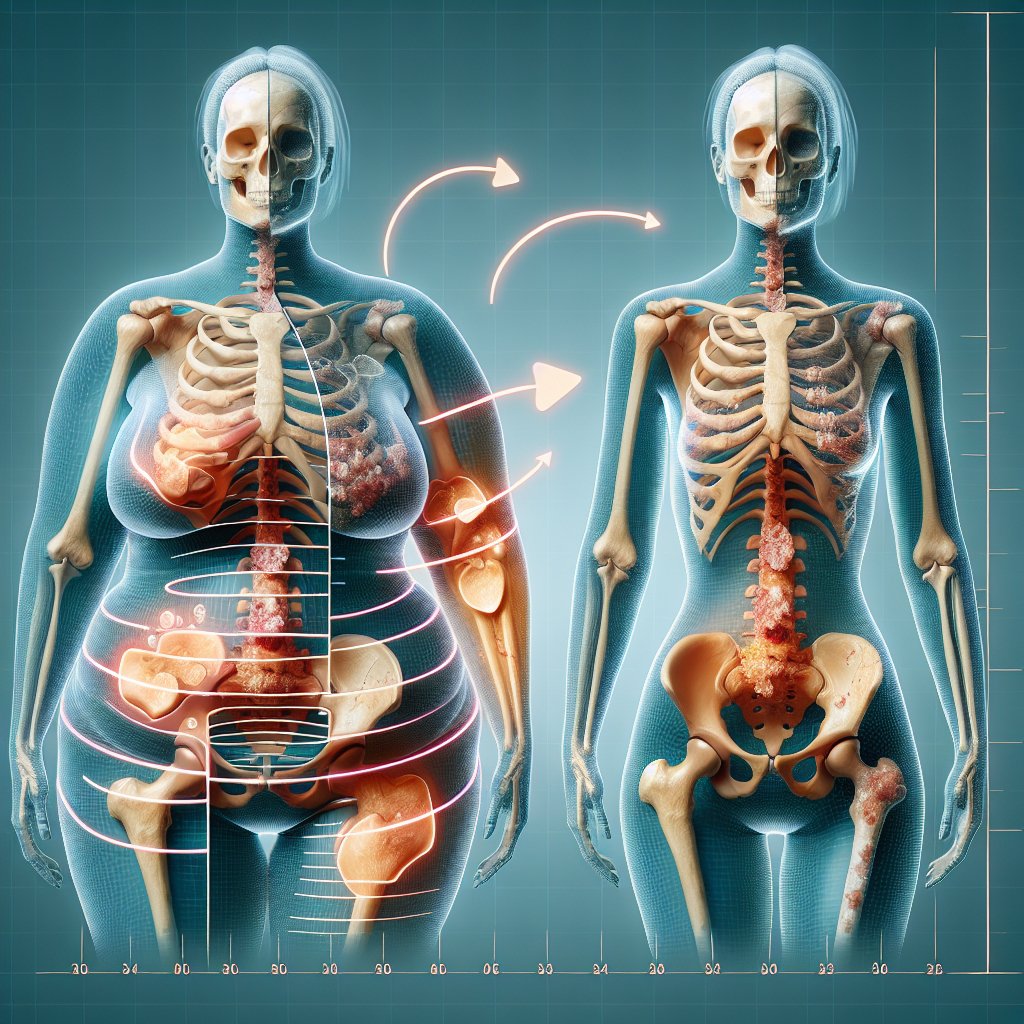The science of bone density changes during weight loss is a complex and multifaceted topic that has garnered significant attention in recent years. As more individuals embark on weight loss journeys, understanding the implications of these changes on bone health becomes crucial. This article delves into the mechanisms behind bone density alterations during weight loss, the factors influencing these changes, and the potential long-term consequences for overall health.
Understanding Bone Density
Bone density refers to the amount of mineral matter per square centimeter of bones. It is a critical indicator of bone strength and health. The denser the bones, the less likely they are to fracture or break. Bone density is influenced by various factors, including genetics, age, sex, hormonal levels, and lifestyle choices such as diet and physical activity.
Bone is a dynamic tissue that undergoes constant remodeling, a process where old bone is broken down and new bone is formed. This balance between bone resorption (the process of breaking down bone) and bone formation is essential for maintaining healthy bone density. When this balance is disrupted, it can lead to conditions such as osteoporosis, characterized by low bone mass and increased fracture risk.
The Impact of Weight Loss on Bone Density
Weight loss can lead to changes in bone density, and the extent of these changes can vary based on several factors. Research indicates that significant weight loss, particularly when it involves a reduction in body fat, can result in decreased bone density. This phenomenon is particularly concerning for individuals who are already at risk for osteoporosis or other bone-related conditions.
Mechanisms Behind Bone Density Changes
Several mechanisms contribute to the changes in bone density during weight loss:
- Caloric Deficit: When individuals reduce their caloric intake to lose weight, the body may enter a state of energy deficiency. This can lead to a decrease in the production of hormones that are essential for bone health, such as estrogen and testosterone.
- Reduced Mechanical Loading: Weight loss often results in decreased body weight, which can lead to reduced mechanical loading on the bones. Bones respond to the forces exerted on them; less weight means less stimulation for bone maintenance and growth.
- Nutritional Deficiencies: Weight loss diets that are not well-balanced may lead to deficiencies in essential nutrients, such as calcium and vitamin D, which are crucial for maintaining bone density.
- Increased Bone Resorption: Studies have shown that weight loss can lead to an increase in bone resorption, where the body breaks down bone tissue faster than it can be rebuilt, resulting in a net loss of bone density.
Factors Influencing Bone Density Changes During Weight Loss
Several factors can influence how weight loss affects bone density:
- Rate of Weight Loss: Rapid weight loss is more likely to result in significant bone density loss compared to gradual weight loss. A slower approach allows the body to adapt better and may mitigate some negative effects on bone health.
- Type of Weight Loss Program: Programs that emphasize a balanced diet rich in nutrients and include resistance training can help preserve bone density during weight loss. In contrast, extreme calorie restriction and lack of physical activity can exacerbate bone loss.
- Age and Gender: Older adults, particularly postmenopausal women, are at a higher risk for bone density loss during weight loss due to hormonal changes and pre-existing lower bone mass.
- Genetics: Genetic predisposition can play a role in how an individual’s bones respond to weight loss. Some people may be more resilient to changes in bone density than others.
Long-Term Consequences of Bone Density Loss
The long-term consequences of bone density loss during weight loss can be significant. Individuals who experience a decrease in bone density may be at a higher risk for fractures, which can lead to complications such as chronic pain, disability, and decreased quality of life. Additionally, fractures in older adults can result in increased mortality rates.
Strategies to Preserve Bone Density During Weight Loss
To mitigate the negative effects of weight loss on bone density, individuals can adopt several strategies:
- Balanced Nutrition: Ensuring adequate intake of calcium, vitamin D, and other essential nutrients is crucial for maintaining bone health. A well-rounded diet that includes dairy products, leafy greens, and fortified foods can help support bone density.
- Incorporate Weight-Bearing Exercises: Engaging in weight-bearing and resistance exercises can help stimulate bone formation and maintain bone density. Activities such as walking, jogging, weight lifting, and dancing are beneficial.
- Gradual Weight Loss: Aiming for a gradual weight loss of 1-2 pounds per week can help minimize the impact on bone density. This approach allows the body to adjust and adapt to changes more effectively.
- Regular Monitoring: Individuals, especially those at risk for osteoporosis, should have their bone density monitored regularly. This can help identify any significant changes early on and allow for timely interventions.
Consulting Healthcare Professionals
Before embarking on a weight loss journey, it is advisable to consult with healthcare professionals, such as a registered dietitian or a physician. They can provide personalized guidance and recommendations based on individual health status, goals, and risk factors. This collaborative approach can help ensure that weight loss efforts do not compromise bone health.
Conclusion
The science of bone density changes during weight loss highlights the intricate relationship between body composition and bone health. While weight loss can offer numerous health benefits, it is essential to approach it with a comprehensive understanding of its potential impact on bone density. By adopting balanced nutrition, engaging in appropriate physical activity, and seeking professional guidance, individuals can work towards achieving their weight loss goals while preserving their bone health for the long term.













